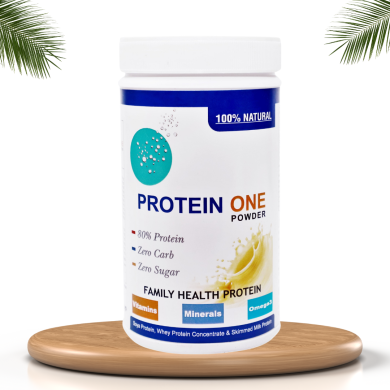Autism Autistic Spectrum Disorder (ASD)
Autism Autistic Spectrum Disorder
What is Autistic Spectrum Disorder (ASD)?
Autistic Spectrum Disorder (ASD) is a neurodevelopmental condition that affects how a person communicates, behaves, interacts socially, and perceives the world. It is called a “spectrum” because symptoms and severity can vary widely from one person to another. ASD typically begins in early childhood and lasts throughout a person’s life.
ASD is not a disease, but a difference in brain development that leads to unique strengths and challenges. Early intervention, proper nutrition, and supportive therapies can make a significant difference in quality of life.
Autism Spectrum Disorder (ASD) is a complex neurodevelopmental disorder characterized by persistent deficits in social communication and interaction, alongside restricted, repetitive patterns of behavior, interests, or activities. It is classified under the DSM-5 and includes previous subtypes such as autistic disorder, Asperger’s syndrome, and pervasive developmental disorder–not otherwise specified (PDD-NOS).
The etiology of ASD is multifactorial, involving genetic predisposition, epigenetic modifications, and environmental factors (e.g., prenatal exposures, gut microbiota imbalance). It typically manifests before age 3 and persists across the lifespan.
Autism Autistic Spectrum DisorderCommon Symptoms of
Symptoms usually appear before age 3 and may persist into adulthood. Here are common signs categorized by behavior:
️ Communication Difficulties:
-
Delayed speech or language skills
-
Difficulty understanding non-verbal communication (gestures, tone of voice)
-
Repetitive or unusual language (echolalia – repeating words or phrases)
-
Avoidance of eye contact
autism Autistic Spectrum DisorderSocial Challenges:
-
Difficulty in making friends or engaging in group play
-
Lack of interest in peers or people
-
Difficulty expressing emotions or understanding others’ feelings
-
Limited facial expressions
Behavioral Patterns:
-
Repetitive body movements (rocking, spinning, flapping hands)
-
Fixation on routines or specific topics
-
Hypersensitivity or low sensitivity to sensory input (light, sound, textures)
-
Strong preferences for certain foods, clothes, or activities
Cognitive Strengths & Weaknesses:
-
Uneven skill development (may excel in math, art, or music)
-
Struggles with problem-solving or flexible thinking
-
Exceptional memory in some cases (e.g., remembering dates, patterns)
1. Core Diagnostic Criteria (DSM-5)
A. Persistent deficits in social communication and interaction, across contexts:
-
Poor eye contact, lack of facial expressions
-
Limited understanding or use of gestures
-
Difficulty in developing peer relationships
-
Lack of shared interests or emotions
B. Restricted, repetitive patterns of behavior, interests, or activities:
-
Stereotyped or repetitive motor movements (hand flapping, rocking)
-
Insistence on sameness; rigid routines or rituals
-
Highly restricted interests (e.g., fixation on specific topics)
-
Hyper- or hypo-reactivity to sensory input (e.g., aversion to noise, textures)
2. Associated Comorbidities
-
ADHD
-
Anxiety or mood disorders
-
Sleep disturbances
-
Epilepsy
-
Gastrointestinal issues (constipation, IBS)
-
Intellectual disability (in some cases)
♂️ Other Supportive Tips:
-
Gluten-Free, Casein-Free Diet: May help reduce behavioral symptoms in some autistic children.
-
Limit processed foods, additives, and sugar
-
Ensure hydration
-
Include fresh fruits, vegetables, whole grains, and lean protein
Nutritional Considerations in Autism Autistic Spectrum Disorder
Children with ASD often present with selective eating habits, leading to micronutrient deficiencies. Additionally, gastrointestinal dysbiosis, inflammation, and oxidative stress are frequently observed.
⚠️ Common Nutritional Deficiencies:
-
Omega-3 fatty acids (EPA/DHA)
-
Vitamin D
-
Magnesium
-
Zinc
-
Vitamin B6 and B12
-
Iron and Folate
-
Amino acids (e.g., L-carnitine, tryptophan)
These deficiencies can impact neurotransmitter synthesis, mitochondrial function, gut-brain axis, and immune regulation, all of which are relevant to the pathophysiology of ASD.
Evidence-Based Supplements in ASD Autism Autistic Spectrum Disorder
1. Omega-3 Fatty Acids (EPA/DHA)
-
Mechanism: Modulates neuroinflammation, enhances neuronal membrane fluidity, supports neurotransmission.
-
Evidence: Clinical trials show improvements in hyperactivity, social skills, and eye contact.
2. Magnesium and Vitamin B6
-
Function: Magnesium supports NMDA receptor modulation and calming effect; B6 is a cofactor for serotonin and dopamine synthesis.
-
Evidence: Combined supplementation has shown behavioral improvements in children with ASD.
3. Vitamin D3
-
Function: Regulates immune function, neurotransmitter balance, and neurodevelopment.
-
Evidence: Low serum vitamin D levels are prevalent in children with autism; supplementation has shown modest improvements in behavior and cognition.
4. Probiotics
-
Function: Restores gut microbiota balance; modulates the gut-brain axis.
-
Evidence: May reduce gastrointestinal symptoms and improve mood regulation.
5. Zinc and Iron
-
Function: Critical for neuronal development, synaptic plasticity, and myelination.
-
Deficiency Impact: Impaired attention, increased irritability.
6. L-Carnitine
-
Function: Supports mitochondrial energy production.
-
Evidence: Studies show improved language and social behavior with L-carnitine supplementation.
7. Melatonin
-
Use: For insomnia and disrupted circadian rhythms.
-
Evidence: Widely accepted for improving sleep latency and quality in ASD patients.
Dietary Approaches (Optional Adjuncts) Autism Autistic Spectrum Disorder
-
Gluten-Free, Casein-Free (GFCF) Diet: Beneficial for some ASD children with gastrointestinal symptoms.
-
Anti-inflammatory diet: Emphasizes whole foods, fiber, and antioxidants.
-
Avoid: Processed food, refined sugar, artificial additives, and food colorings.
Clinical Notes autism Autistic Spectrum Disorder
-
Always assess individual biochemistry, allergies, and comorbidities before starting supplements.
-
Monitor progress using validated tools like CARS (Childhood Autism Rating Scale) or ADOS (Autism Diagnostic Observation Schedule).
-
Supplementation should always be adjunct to behavioral therapies such as ABA (Applied Behavioral Analysis), occupational therapy, and speech therapy.
⚕️ Conclusion autism Autistic Spectrum Disorder
Autism is a complex, lifelong condition that requires a multidisciplinary approach. While no single supplement or intervention can “cure” ASD, the right combination of nutritional support, targeted supplementation, and therapeutic interventions can significantly improve developmental outcomes, behavior, cognition, and quality of life.







Leave a reply